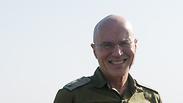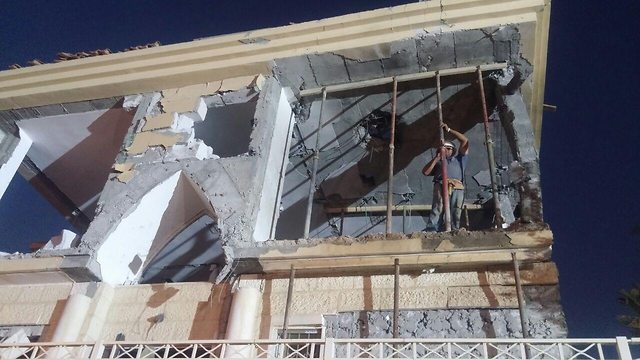 Śmierć, rytualny pochówek i życie pozagrobowe
Śmierć, rytualny pochówek i życie pozagrobowe
Redakcja
 Okładka „Chiduszu” 9/2018. Autorka: Edyta Marciniak
Okładka „Chiduszu” 9/2018. Autorka: Edyta Marciniak
MIJA PIĘĆ LAT OD UKAZANIA SIĘ PIERWSZEGO NUMERU „CHIDUSZU”. W JUBILEUSZOWYM WYDANIU SPORO MIEJSCA POŚWIĘCAMY ŚMIERCI, ŻYDOWSKIM RYTUAŁOM POGRZEBOWYM, CMENTARZOM I ŻYCIU POZAGROBOWEMU.
Okładka
Jak ciało i dusza, jak śmierć i życie, tak nasza okładka podzielona jest na dwie części. Dopiero po rozłożeniu „Chiduszu” można zobaczyć ten pogrzebowy obraz w całości.
Kto i w jaki sposób dokonuje tahary, czyli rytualnego przygotowania ciała przed złożeniem do grobu? Jak przebiega ten proces? Z czym muszą zmagać się ci, którzy go przeprowadzają? W reportażu Święta praca o swoich doświadczeniach opowiadają członkowie bractw pogrzebowych z gmin żydowskich we Wrocławiu, Krakowie oraz Warszawie.
Porozmawiajmy o śmierci
O rabinie Boazie Pashu (byłym rabinie Krakowa) zrobiło się niedawno głośno po tym, jak w jednej ze skrajnie prawicowych gazet grożono mu śmiercią. Pash w wywiadzie dla „Chiduszu” opowiada o tym, jak rozumie życie pozagrobowe w judaizmie oraz jak zmieniały się koncepcje jego postrzegania na przestrzeni wieków. Opisuje również przebieg zamachu terrorystycznego w Jerozolimie, w którym od śmierci uratowała go kurtka przywieziona z Polski.
Wszyscy święci
Opowieść o cmentarzach, które pod swoją opieką ma wrocławska gmina żydowska. Na dwóch z nich są pasieki z ulami. Trzeci jest regularnie okradany, a na czwartym ktoś poukładał stosy z macew. Do piątego nie ma drogi dojazdowej, a na szóstym leży kilkaset porozbijanych nagrobków. Lista tych cmentarzy wydłuża się z każdym rokiem. Tymczasem odpowiedź na pytanie, kto i w jaki sposób miałby o nie dbać, wcale nie jest prosta.
Nie ma historii niemożliwych
Niektórych do poszukiwań skłania od lat ukrywana w rodzinie tajemnica. Inni w ogóle nie znają swoich najbliższych. Druga wojna światowa przerwała wiele życiorysów, zwłaszcza żydowskich. Obecnie, ponad siedemdziesiąt po jej zakończeniu, odpowiedzi na pozostawione w nich zagadki można szukać już tylko w archiwach. Na skorzystanie z usług genealogów decyduje się coraz więcej osób.
Sabina ze Lwowa
Niemal w każdym numerze „Chiduszu” prezentujemy świadectwo osoby, która przeżyła Zagładę. Przejmującą opowieść o Sabinie napisała jej wnuczka. We Wrocławiu, w 70 lat po zakończeniu wojny, babcia postanawia w końcu wyjawić prawdę o sobie i swojej rodzinie. W ciepłe, sierpniowe popołudnie zabiera wnuczkę do wojennego Lwowa i Krakowa, do Auschwitz, Płaszowa i Lichtewerden. To przejmująca historia o miłości, morderstwach, wydawaniu Żydów i pomocy udzielanej przez dobrych ludzi.
Chodź na Pragę
14 listopada nakładem Wydawnictwa Czarne ukaże się książka Adama Dylewskiego Ruda, córka Cwiego, opowiadająca historię Żydów na warszawskiej Pradze. Już w tym numerze prezentujemy najciekawsze wątki z historii praskiej społeczności szczegółowo opisanej w książce.
Ludwik Wołowski. Rewolucjonista, bankier, liberał
Osiągnięcia Ludwika Wołowskiego do dziś nie zostały należycie docenione. Powstaniec, naukowiec, orator, polityk, wreszcie współtwórca jednego z najważniejszych banków XIX-wiecznej Europy nadal pozostaje bardziej znany we Francji niż w Polsce, choć to jeden z najwybitniejszych przedstawicieli Wielkiej Emigracji.
Zapomniany holokaust. Zagłada Romów i Sinti w literaturze
Punktem wyjścia do rozważań o zagładzie Romów i Sinti w literaturze polskiej musi być stwierdzenie bardzo skromnej obecności tej tematyki. Nie inaczej jest z ludobójstwem Ormian, masakrą w Srebrenicy, nazistowską eksterminacją osób chorych psychicznie – literatura polska nie wydaje się być specjalnie tymi problemami zainteresowana. Do takiego wniosku prowadzi lektura przełomowej książki prof. Arkadiusza Morawca, w której badacz opisuje przypadki Literatury polskiej wobec ludobójstwa. Jest jednak kilka utworów dotyczących zagłady Romów, o których nie można zapomnieć.
Gazetki ścienne
W styczniu 1949 roku we Wrocławiu odbyła się konferencja korespondentów i redaktorów gazetek ściennych. Tematyka prasy zdominowała niemal cały trzeci numer jidyszowego „Niderszlezje” z tego roku.
Biblia LGBTQ+
Na koniec tradycyjnie już dwa świetne queerowe komentarze do Biblii, stanowiące przeciwwagę dla tradycyjnych komentarzy rabina Jonathana Sacksa, publikowanych co tydzień na naszej stronie. Pierwszy z nich do parszy Lech lecha, drugi do Wa-jera.
Zapraszamy do lektury
Jubileuszowy, pogrzebowy „Chidusz” dostępny od piątku (19.10.2018) w Empikach oraz na publio.pl. Zapraszamy również do księgarń żydowskich we Wrocławiu (synagoga), Warszawie (POLIN I ŻIH) i Krakowie (Jarden oraz Austeria), a najbardziej do prenumeraty.
Zawartość publikowanych artykułów i materiałów nie reprezentuje poglądów ani opinii Reunion’68,
ani też webmastera Blogu Reunion’68, chyba ze jest to wyraźnie zaznaczone.
Twoje uwagi, linki, własne artykuły lub wiadomości prześlij na adres:
webmaster@reunion68.com








